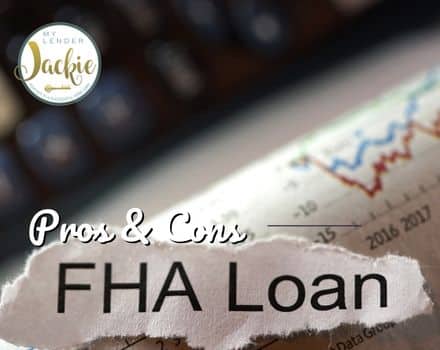Deciding which type of mortgage is right for you comes down to a combination of financial details and personal preference. If you are prepared with good credit and stable employment, you may be lucky enough to have multiple mortgage options when you prepare to buy your first home.
To help decide which type of mortgage is right for you, we have outlined the pros and cons of an FHA loan below.
What is an FHA Loan?
FHA loans are insured by the Federal Housing Administration (FHA). Being government backed means lenders can offer these loans to a wider range of applicants because the government guarantees to cover the loan if the borrower defaults. Someone who might otherwise be a risky borrower is a strong applicant with the government backing.
In other words, people who cannot qualify for conventional loans may still be able to qualify for an FHA loan.
Pros of an FHA Loan
There are multiple benefits associated with FHA loans.
Lower credit score requirements
The first benefit of FHA loans is something we have already mentioned: it is easier to qualify for an FHA loan, in spite of less than perfect credit that makes it difficult to qualify for a conventional mortgage. In some cases, borrowers with credit as low as 500 can qualify for an FHA loan, while conventional mortgages usually require at least a 620 credit score.
If you have a credit score of 580 or something close to it, and FHA loan may be your perfect choice.
Lower down payment options
FHA loans also offer borrowers with a credit score of 580 or higher the option to make a small down payment, as low as 3.5%. If you are concerned about saving up a down payment for you home, having the choice to put down just 3.5% may be a game changer for you. Buying a $500,000 home with a 20% down payment means saving $100,000, but a 3.5% down payment on that same home is just $17,500.
Lower DTI requirements
DTI refers to debt-to-income, a ratio lenders use to determine whether you can afford to take on new debt. Your DTI is calculated by comparing your monthly debt payments (like credit cards, car payments, student loans, and any other debts you have) to your monthly income. For example, if you make $5,000 per month and pay $500 per month in debt payments, you have a 10% DTI.
FHA loans have far less strict requirements for your DTI than a conventional loan. In most cases, a DTI up to 43% is acceptable for an FHA mortgage.
Cons of an FHA Loan
While FHA loans have some obvious benefits, they are not right for everyone. There are some cons associated with these mortgages, too.
Private Mortgage Insurance (PMI)
One of the downsides of an FHA loan is the need to pay for private mortgage insurance (PMI). If you put less than 20% down on the home, you will pay this monthly premium as a protection for the lender. This is because the lender owns such a significant portion of the asset that they are at risk were you to default on the loan.
Until you have paid enough on your mortgage principal to equal 20% of the purchase price, or until you have enough equity in the home to refinance out of PMI, you can expect to pay a monthly cost in addition to your monthly mortgage payment.
Making Competitive Offers
While not always the case, some buyers have difficulty competing when making an offer on a property that has received multiple offers. An FHA loan may not be the seller’s first pick because it looks more risky. This does not have to be a deal breaker, but you will want to work with a real estate agent who can strategize ways to make your offer stand out in spite of your FHA financing.
Loan Maximums
FHA loans are designed to help people get into the real estate market, not buy luxury homes. Because of this, there are loan maximums associated with these types of mortgages. These maximums vary depending on where you live, but keep in mind that your budget may be limited by the FHA maximum even if it is not limited by your income.
For more information on second loans and all of your mortgage options in Mission Viejo and California please contact me anytime.
For help finding the right type of mortgage in California please contact me at any time.
- Tips for Scoring Lower Rates and Speedier Closings on Mortgages Right Now
- Can you buy a new house after forbearance?
- How Does a Mortgage Loan Officer Get Paid?
- Is refinancing from an FHA to Conventional a good idea?
- What is a Mortgage Rate Lock?
- No Closing Cost Refinance
- What You Need to Know About an E-Closing
- Can you refinance a mortgage on a COVID forbearance plan?
- How to Start Saving Money for a House
- Why Fannie Mae and Freddie Mac Impact Every Mortgage
- 10 Point List to Know if You’re Ready to Buy a House


